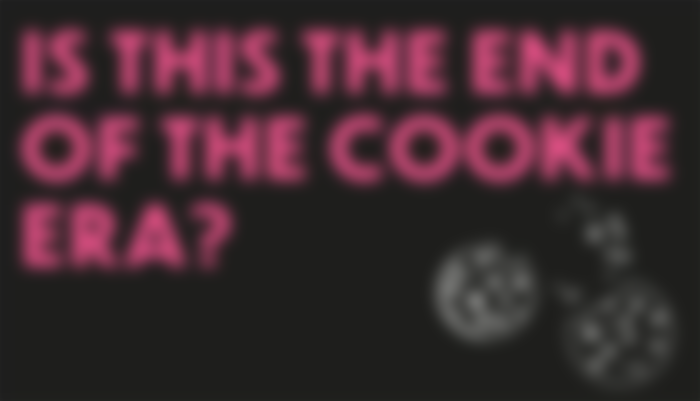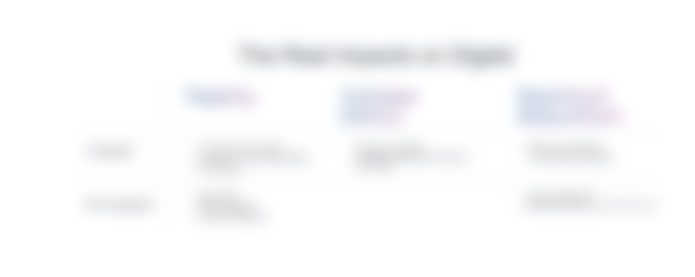The world of advertising has made good use of the data, especially through the use of cookies, in order to better adapt the target groups to the wishes of advertisers. But various data collection breaches have raised user concerns.

Questions began to be asked, such as:
-Who collects the data?
-How do they use the data?
-Is the data processed with due regard for privacy compliance?
All such ambiguities have led to a number of changes that favor the privacy of users. The General Data Protection Regulation (GDPR) has led Facebook and Google to voluntarily change the collection of data based on cookies, the most recent being the removal of third-party cookies from Internet browsers. Apple’s Safari blocked these third-party cookies as early as 2017, followed by Mozilla Firefox late last year. Google Chrome,which accounts for about 62% of browsing, however, recently announced a two-year transition period.
So we will no longer be able to programmatically advertise based on the collected cookies. What does this mean for digital advertising?
Maybe to begin with I would like to explain to you what third party cookies actually are? These are cookies created by domains visited by users, and these are typically used for tracking and online advertising. It is used to collect various user information such as user behavior on the site, location, type of device, etc.
But what will be the impact on everyone involved in the digital industry if these cookies are blocked?
1. IMPACT ON ADVERTISERS
At times, advertisers depended on third-party data. In order to target the reach of relevant users, they had to make an effort to create information about the target groups and to connect with the appropriate publisher.
There comes a time when it is necessary to focus on alternative strategies to target the right users. Creating the latest, most recent own data, using contextual advertising, compiling lists, developing a universal ID, etc. These are the ways a company can develop its software advertising for the future.
2. IMPACT ON PROGRAMATIC ADVERTISING
When it comes to digital advertising, third-party cookies are its backbone. Consumer privacy laws, such as the GDPR, CCPA (California Consumer Privacy Act), seek to ensure that user data is tracked with their consent and transparency. Users are then re-targeted with their consent based on their past online activity, which, however, bothers most users.Effect:
• Collected data based on cookies will be more expensive and competitive.
• DSP (Demand Side Platform) will begin efforts to provide targeted online campaigns. Greater pressure on InApp login and registration or. login on the website. In this way, websites and applications will build up a source of stock to target context / interest online.
• Supply and demand will be closer, as in this way they offer a better alternative for the user.
3. WHAT IS THE FUTURE OF PUBLISHERS?
Providers of platforms and Ad Exchange technology will not be able to identify users on websites in the same way as they do now using third-party cookies.
They will need to focus on:
• Encouraging users to create accounts on websites.
• Require users to turn on cookies to visit their websites.
• Spend more time testing unique solutions to self-identify users.

4. WHAT WILL HAPPEN TO DATA PROVIDERS?
Adtech platforms will not be able to map the appropriate user to display ads in the browser, as cookie synchronization will no longer be possible, so their targeting, targeting frequency, and conversion tracking will need to be treated differently.
The end of third-party cookies in web browsers means that DMPs will not be able to create target groups that advertisers can later use to activate and target the target group.
So it will:
• There will be a drop in their revenue, probably in proportion to the rate of cookie removal.
• It will be necessary to invest in new solutions: contextual targeting, InApp data, logins on websites.
5. TRADEMARKS
Strong brand emphasis is anticipated in the upper part of the funnel, in the brand awareness phase.
So:
• Advertising (own) 1-st party data will mostly be used to find similarities to data already collected, rather than directly targeting customers / site visitors.
• They will need to make it impossible to disable the collection of 3 -rd party data from other manufacturers.
ALTERNATIVES TO COOKIES WILL CONTINUE.
Google's cookie removal situation will certainly be challenged, both legally and commercially. The industry, led by the IAB, is expected to propose a new standard for replacing cookies (the “Rearc” project).
InApp will follow the same path. The use of device IDs will gradually be based on login (Apple in September 2020, followed by Android).
Of course, changing the reduction of cookies will have both positive and negative impacts on the advertising industry, but as an audience and advertisers, do we have to decide what is more important to us, personalized and traceable ads or audience data?
It will no longer be so important who the user is for a particular device, but the sustainable moment in which the user finds himself. At this point, all platforms that develop contextual targeting will have a big advantage, which will ensure that the ad is placed in the right place at the right time. The user will be placed in the moment when he needs something, so he will be able to choose the option that will be created for him "The right placement at the right moment."
Thank you for reading my article.
Greetings to you from @Zlatolaska


We have to adapt to new technologies. Google is still the strongest.